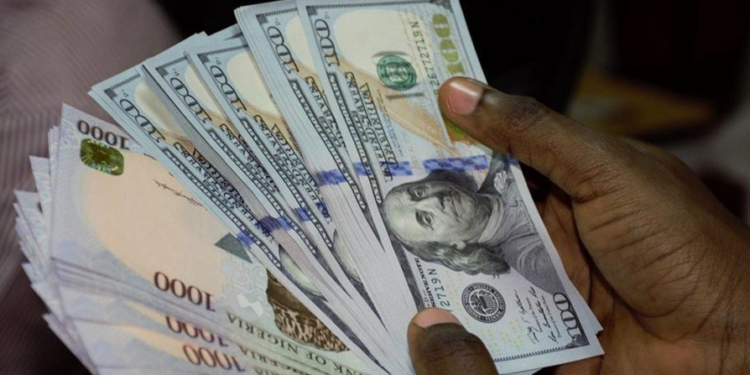The Central Bank of Nigeria has issued a circular to Bureau De Change operators (BDCs), informing them that it has sold $10,000 to each BDC at a rate of N1,251/$1.
In a circular seen by Nairametrics, each BDC is instructed to sell the dollars to eligible customers at a rate not exceeding 1.5% above the purchase price.
This suggest BDC are not expected to sell above N1,269/$1.
- “We refer to our letter to you referenced TED/DIR/CON/GOM/001/071 in respect of the above subject wherein the CB approved a second tranche of sale of FX to eligible BDCs.
- We write to inform you of the sale of $10,000 to each BDC at the rate of N1,251/$1. The BDCs are to sell to eligible end users at a spread of NOT MORE THAN 1.5 per cent above the purchase price.”
This confirms the resumption of dollar sales to BDC operators after a prolonged period of suspension by the central bank in 2021.
The ban was lifted earlier in the year following the revocation of licences of over 4173 BDC operators in February.
Investigations by Nairametrics reveal that the exchange rate fell below N1,400/$1 in the parallel market after closing at N1,431/$1 on Friday, with the referenced NAFEX rate at N1,382/$1.
Recommended reading: Exchange rate post best gain in 6 weeks, CBN policies paying off
What this means
At an estimated 1,500 BDC licenses remaining, Nairametrics estimates that over $15 million might have been sold into the retail end of the market. Before the revocation Nigeria had an estimated 5,689 licenses.
- The resumption of forex sales to BDCs indicates that the apex bank is refocusing on enhancing liquidity in the retail segment of the forex market.
- Previously, price arbitrage was a significant reason for the prohibition of forex sales to operators during Emefiele’s tenure, a time when the exchange rate was fixed.
- However, with the exchange rate now being “market-determined” under a new forex regime, the apex bank believes that operators no longer have the incentive to engage in arbitrage by purchasing at lower rates from the CBN and selling at higher rates in the parallel market.
By enhancing liquidity, the central bank aims to stabilize the forex market, narrow the gap between official and parallel market rates, and ultimately reduce the volatility of exchange rates.
This strategy is expected to make forex more accessible to retail and small-scale enterprises, fostering a more transparent and efficient market.
If sustained, Nairametrics projects that the impact of improved liquidity could lead to an even stronger Naira in the short term. This projection is further supported by the anticipated hike in MPR rates when the CBN MPC reads out its communique on Tuesday.












